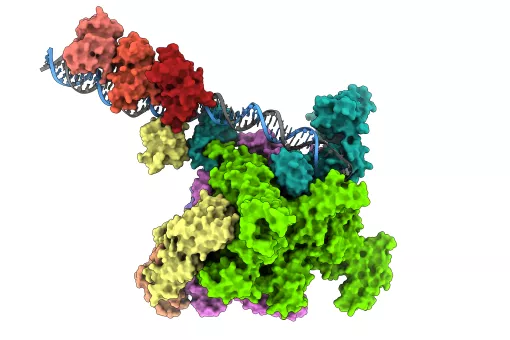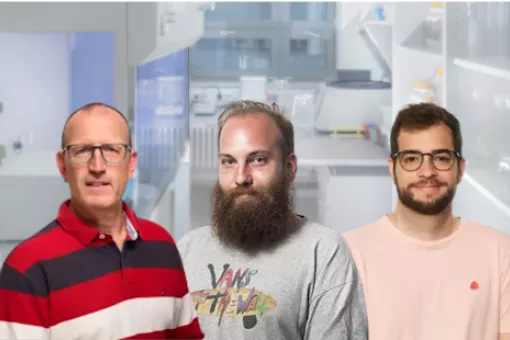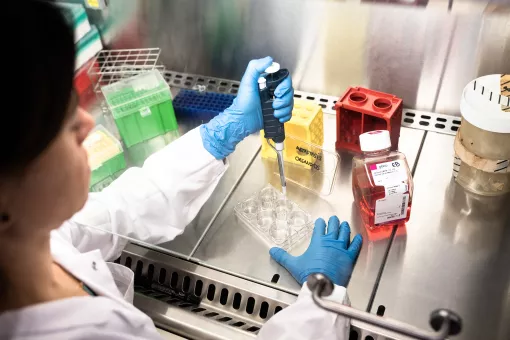Images
World experts meet in Barcelona to present the latest findings in cancer, neurodegeneration and drug addiction using Drosophila.
Cancer, drug addiction, neurodegenerative diseases, epilepsy, immune system defects, visual pathologies, heart disease. A tiny insect, the fruit fly (Drosophila melanogaster) is providing an excellent model system to unravel these diseases and many others. More than 5,000 researchers worldwide are currently working with this organism and producing results that will have beneficial effects for health; Spain is among the leading countries for research that uses this animal model.
Twenty-six international researchers, selected on the basis of their experience in studying human disease using this animal system, will meet for the first time to present and discuss their research. The conference, to be held at the Parc Científic de Barcelona (PCB, Barcelona Science Park) on October 5-7, will focus on the use and exploitation of Drosophila as a tool to study human diseases. The event is organized by the Institute for Research in Biomedicine (IRB Barcelona) and ICREA (Institución Catalana de Investigación y Estudios Avanzados), on the initiative of Cayetano González and Marco Milán, ICREA research professors at IRB Barcelona and experts in the field of cell and developmental biology.
The role of the fly
Studies using Drosophila date back to the last century and have provided valuable insight into the fundamental principles of biology and genetics. Only in recent years, however, and thanks in large part to the discovery of the high degree of homology between the genetic make-up of flies and vertebrates, has Drosophila emerged as one of the most effective model systems to analyze the function of genes whose human homologues play a crucial role in many diseases, including neurological, metabolic and developmental disorders, cancer, cardiovascular failure, and pathologies of the visual, auditory and immune systems.
A growing number of laboratories are modelling human diseases in the fly. These models are providing the basic tools for genetic and pharmacological tests that aim to identify target genes as well as compounds that may lead to future therapies. Moreover, more and more companies that exploit this model system are being established worldwide. In order to highlight the potential of applied science, the organizers of this conference have invited two of the main pharmaceutical companies currently making considerable investments into research using Drosophila: En Vivo Pharmaceuticals, in the US, and VASTox in Oxford, UK.
Drug addiction, cancer and heart disease
“What can a fly tell us about drug addiction?” is the title of a talk by the University of California's Ulrike Heberlein, a pioneer in drug abuse research using Drosophila. Her research group focuses on the possible links between genes and behaviour caused by drug abuse and the mechanisms that regulate responses to psychostimulants such as alcohol, cocaine and nicotine.
Drosophila is a key tool for studying certain aspects of cancer, and research into the development and proliferation of tumours will be a main topic of the conference. Ross Cagan, from the University of Washington, will present his recent research on a drug that has a direct effect on tumour progression. Cayetano González, from IRB Barcelona, will discuss his work on stem cells and cancer; and Ginés Morata, from the Universidad Autónoma de Madrid, will address apoptosis and tumourous transformation.
Heart disease is another topic that has recently been added to the list of diseases studied using Drosophila. Rolf Bodmer, from The Burnham Institute in the US, has begun to use this model to study arrhythmias and heart failure. His presentation “Arrhythmias and cardiac failure: the Drosophila model of congenital heart disease” will highlight the latest results in this field.
About IRB Barcelona
The Institute for Research in Biomedicine (IRB Barcelona) pursues a society free of disease. To this end, it conducts multidisciplinary research of excellence to cure cancer and other diseases linked to ageing. It establishes technology transfer agreements with the pharmaceutical industry and major hospitals to bring research results closer to society, and organises a range of science outreach activities to engage the public in an open dialogue. IRB Barcelona is an international centre that hosts 400 researchers and more than 30 nationalities. Recognised as a Severo Ochoa Centre of Excellence since 2011, IRB Barcelona is a CERCA centre and member of the Barcelona Institute of Science and Technology (BIST).





